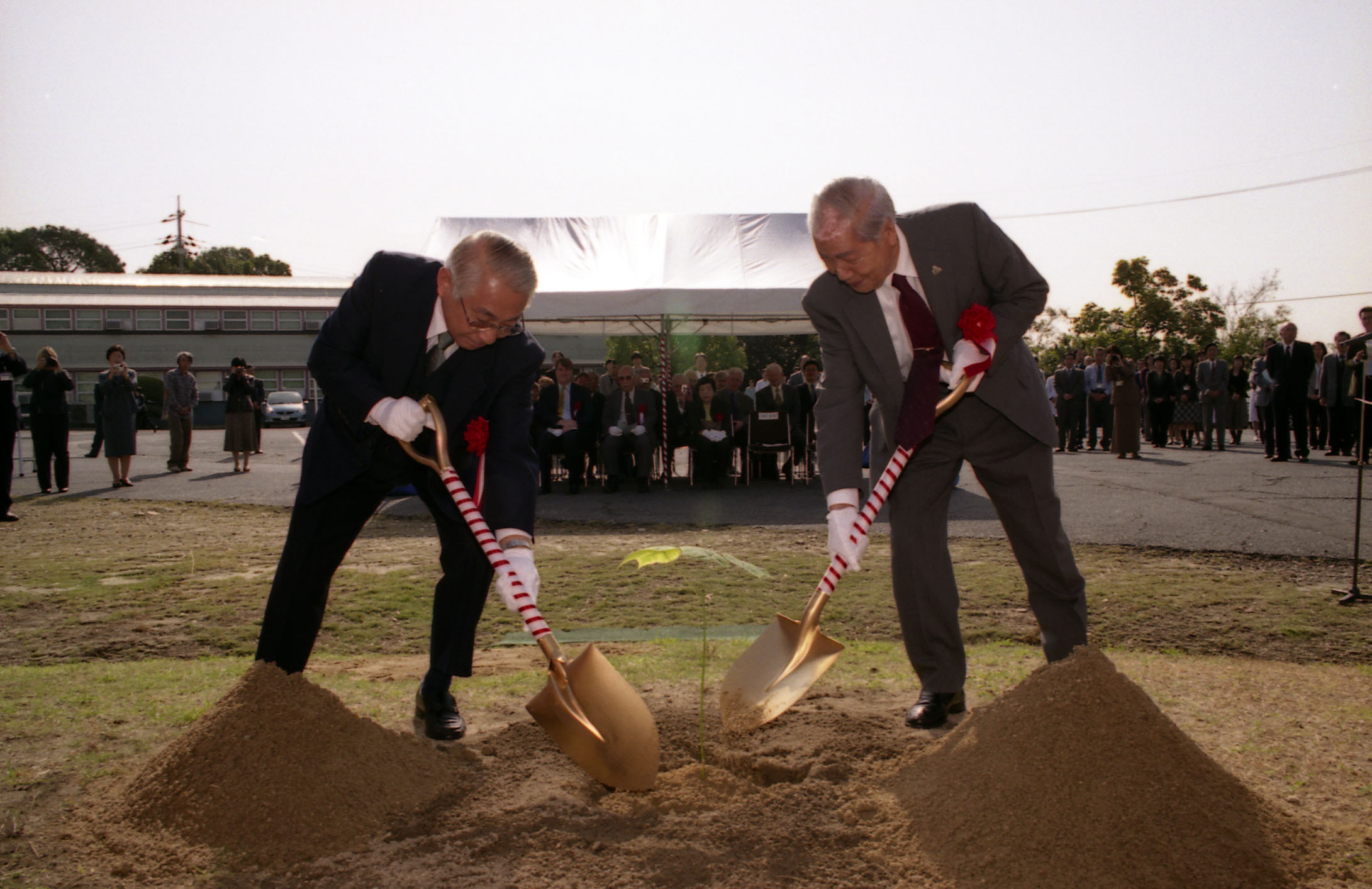- News
RERF mourns the passing of Sunao Tsuboi
Sunao Tsuboi passed away on October 24, 2021.
Born in 1925, Mr. Tsuboi was 20 at the time of the Hiroshima atomic bombing, to which he was exposed at a distance of only 1.2 kilometers from the hypocenter. At that distance, Mr. Tsuboi suffered severe burns over his entire body, not to mention exposure to high levels of radiation. I understand he survived, after hovering on the verge of death for 40 days, under the loving care of his family. After the war, he became a mathematics teacher at a junior high school, spoke to the public about his A-bombing and other experiences, and led the hibakusha movement under the slogan “Never give up.” With that, his life came to an end. He was 96 years old.
The Radiation Effects Research Foundation (RERF) conducts research with cooperation from A-bomb survivors based on its articles of incorporation. In advancing this research, RERF received substantial assistance from Mr. Tsuboi. Truly important for RERF, as the basis of our research, is the fostering of good relations with A-bomb survivors who participate in our studies as well as with local individuals and organizations. Since 1998, Mr. Tsuboi was a member of RERF’s Local Liaison Council, established to develop close connections to the local community, with RERF gaining numerous insights from him in that role. He participated in a commemorative tree-planting ceremony and spoke his congratulations as a guest at RERF’s 30th anniversary ceremony, held in 2005. He served as closing speaker at a symposium, held in 2007 at the U.S. National Academy of Sciences, to commemorate the 60th anniversary of ABCC-RERF. Mr. Tsuboi pointed out the importance of RERF research from the standpoint of the A-bomb survivors and finished his talk using the words “Never give up” with respect to the work of nuclear weapons abolition. His words were met with thunderous applause. He most recently spoke at the ABCC-RERF 70th anniversary ceremony, held in 2017. At a meeting of the RERF external Stakeholder Committee established in 2018 to discuss archived biosamples use as a crucial issue for RERF’s future research, he remarked, “I hope RERF can continue to pay heed to the A-bomb survivors without forgetting its ethical responsibilities.” We have taken his opinion to heart. That those were his final words at a public RERF event is truly a pity.
No more needs to be mentioned about the misery and absurdity of the atomic bombing. Mr. Tsuboi’s attitude toward the tragedy was based on his own clear logic. He explained the importance of objectively describing and analyzing the fundamental reality of the atomic bombing from a scientific perspective, not only as a “disaster” in the subjective sense. His attitude is nothing if not the philosophy that underpins RERF’s establishment. Perhaps due to his philosophy of trying always to move forward, Mr. Tsuboi never dwelled, as far as I’m aware, on RERF’s ABCC past, something of which RERF should always be mindful.
Mr. Tsuboi’s lucid thinking, supported by both science and ethics, seems to have been based on his strong curiosity about science and willingness to make efforts symbolized by a personal motto of “Never give up.” Around February 2017, when I visited Mr. Tsuboi at the offices of the Hiroshima Prefectural Confederation of A-Bomb Sufferers Organizations (Hiroshima Prefectural Hidankyo), he reported something interesting. “I took a shot at the math problems on this year’s national test for university admissions, and I managed to solve all of them,” he said. Despite the fact that he had taught math, I was astonished that the then 92-year-old was able to handle college-level math problems.
Sunao Tsuboi was a man of logic, ethics, and drive. We all sincerely mourn his passing.
Ohtsura Niwa, Chairman
Radiation Effects Research Foundation

Sunao Tsuboi (right) planting an A-bombed aogiri, or Chinese parasol tree, at RERF’s 30th anniversary ceremony alongside Toshiteru Okubo, former RERF Chairman (left) (November 2005)
